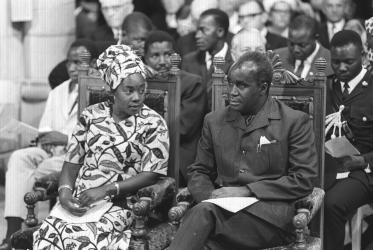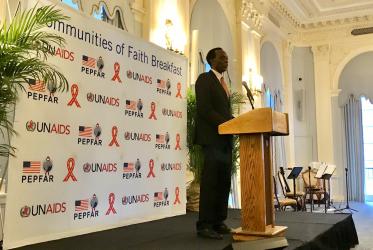“Statelessness renders people’s vulnerability to abuse and to denial of their rights invisible to national authorities. In this sense the right to a nationality is a threshold issue for access to protection of all other human rights - almost a 'right to have rights'”, said Peter Prove, director of the World Council of Churches (WCC) Commission of the Churches on International Affairs (CCIA), following a regional training workshop on birth registration and gender discriminatory nationality laws in Africa, organized by the WCC in Addis Ababa, Ethiopia, 11–13 May.
17 May 2016




